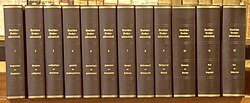
Lists of dictionaries cover general and specialized dictionaries, collections of words in one or more specific languages, and collections of terms in specialist fields. They are organized by language, specialty and other properties.

Lists of dictionaries cover general and specialized dictionaries, collections of words in one or more specific languages, and collections of terms in specialist fields. They are organized by language, specialty and other properties.
Basic English is a controlled language based on standard English, but with a greatly simplified vocabulary and grammar. It was created by the linguist and philosopher Charles Kay Ogden as an international auxiliary language, and as an aid for teaching English as a second language. It was presented in Ogden's 1930 book Basic English: A General Introduction with Rules and Grammar.

A dictionary is a listing of lexemes from the lexicon of one or more specific languages, often arranged alphabetically, which may include information on definitions, usage, etymologies, pronunciations, translation, etc. It is a lexicographical reference that shows inter-relationships among the data.

An encyclopedia or encyclopaedia is a reference work or compendium providing summaries of knowledge, either general or special, in a particular field or discipline. Encyclopedias are divided into articles or entries that are arranged alphabetically by article name or by thematic categories, or else are hyperlinked and searchable. Encyclopedia entries are longer and more detailed than those in most dictionaries. Generally speaking, encyclopedia articles focus on factual information concerning the subject named in the article's title; this is unlike dictionary entries, which focus on linguistic information about words, such as their etymology, meaning, pronunciation, use, and grammatical forms.
The identity of the longest word in English depends on the definition of a word and of length.
Lexicography is the study of lexicons and the art of compiling dictionaries. It is divided into two separate academic disciplines:
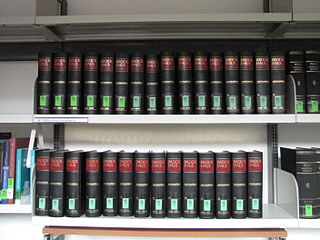
A reference work is a work, such as a paper, book or periodical, to which one can refer for information. The information is intended to be found quickly when needed. Such works are usually referred to for particular pieces of information, rather than read beginning to end. The writing style used in these works is informative; the authors avoid opinions and the use of the first person, and emphasize facts.
A thesaurus, sometimes called a synonym dictionary or dictionary of synonyms, is a reference work which arranges words by their meanings, sometimes as a hierarchy of broader and narrower terms, sometimes simply as lists of synonyms and antonyms. They are often used by writers to help find the best word to express an idea:
...to find the word, or words, by which [an] idea may be most fitly and aptly expressed
Webster's Dictionary is any of the US English language dictionaries edited in the early 19th century by Noah Webster (1758–1843), a US lexicographer, as well as numerous related or unrelated dictionaries that have adopted the Webster's name in his honor. "Webster's" has since become a genericized trademark in the United States for US English dictionaries, and is widely used in dictionary titles.

Merriam-Webster, Incorporated is an American company that publishes reference books and is mostly known for its dictionaries. It is the oldest dictionary publisher in the United States.
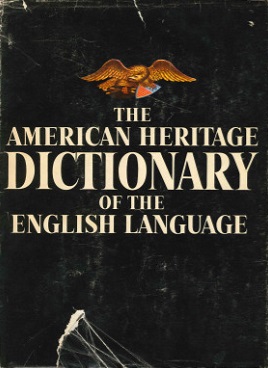
The American Heritage Dictionary of the English Language (AHD) is a dictionary of American English published by HarperCollins. It is currently in its fifth edition.

David Crystal, is a British linguist who works on the linguistics of the English language.

The Free Dictionary is an American online dictionary and encyclopedia that aggregates information from various sources. It is accessible in fourteen languages.
Stop words are the words in a stop list which are filtered out before or after processing of natural language data (text) because they are deemed insignificant. There is no single universal list of stop words used by all natural language processing tools, nor any agreed upon rules for identifying stop words, and indeed not all tools even use such a list. Therefore, any group of words can be chosen as the stop words for a given purpose. The "general trend in [information retrieval] systems over time has been from standard use of quite large stop lists to very small stop lists to no stop list whatsoever".
Jaroslav-Bohdan Antonovych Rudnyckyj was a Ukrainian-Canadian linguist and lexicographer with a specialty in etymology and onomastics, folklorist, bibliographer, travel writer, and publicist.
Simple English may refer to:

Webster's Third New International Dictionary of the English Language, Unabridged is an American English-language dictionary published in September 1961. It was edited by Philip Babcock Gove and a team of lexicographers who spent 757 editor-years and $3.5 million. The most recent printing has 2,816 pages, and as of 2005, it contained more than 476,000 vocabulary entries, 500,000 definitions, 140,000 etymologies, 200,000 verbal illustrations, 350,000 example sentences, 3,000 pictorial illustrations and an 18,000-word Addenda section.
Studies that estimate and rank the most common words in English examine texts written in English. Perhaps the most comprehensive such analysis is one that was conducted against the Oxford English Corpus (OEC), a massive text corpus that is written in the English language.
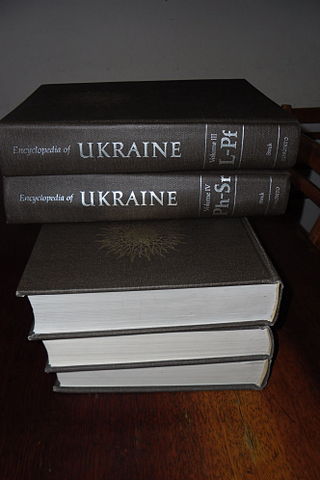
The Encyclopedia of Ukraine, published from 1984 to 2001, is a fundamental work of Ukrainian Studies.
Adrian Richard West Room was a British toponymist and onomastician, a Fellow of the Royal Geographical Society and a prolific author of reference works relating primarily to the origins of words and place-names.
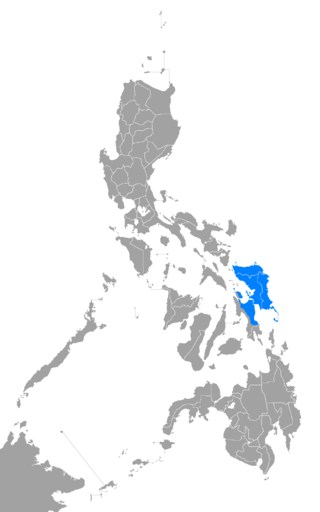
Waray is an Austronesian language and the fifth-most-spoken native regional language of the Philippines, native to Eastern Visayas. It is the native language of the Waray people and second language of the Abaknon people of Capul, Northern Samar, and some Cebuano-speaking peoples of western and southern parts of Leyte island. It is the third most spoken language among the Bisayan languages, only behind Cebuano and Hiligaynon.